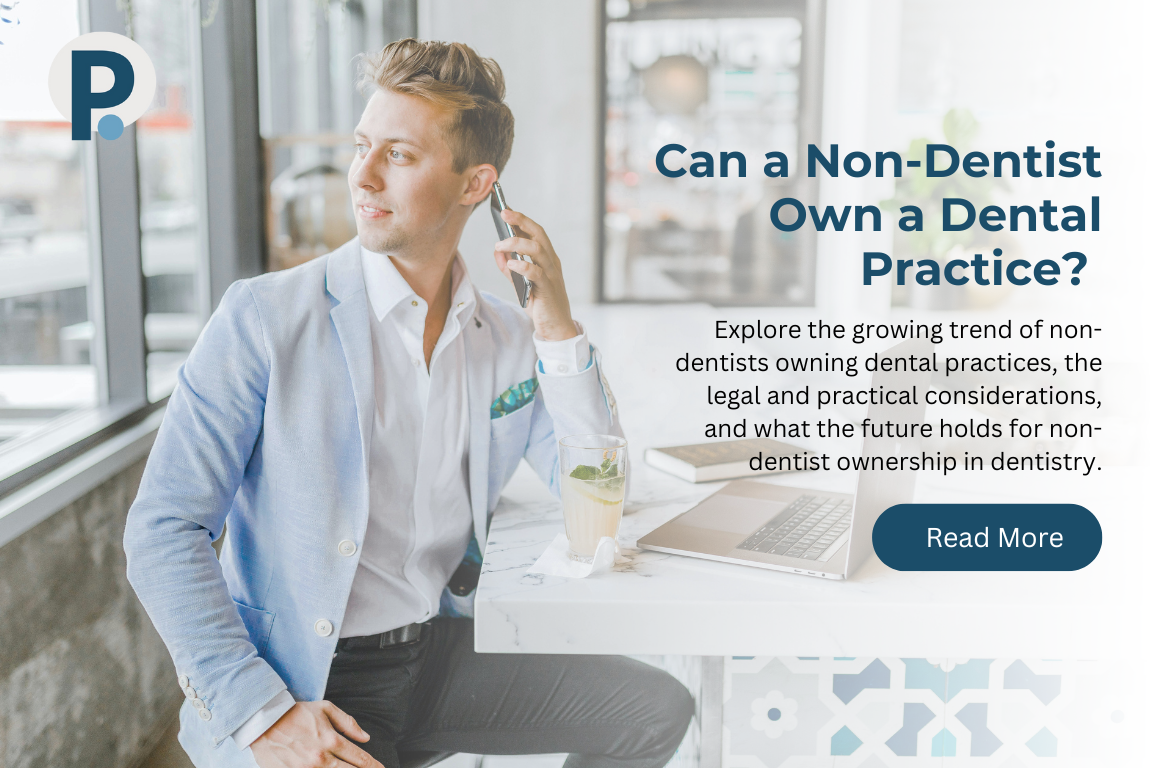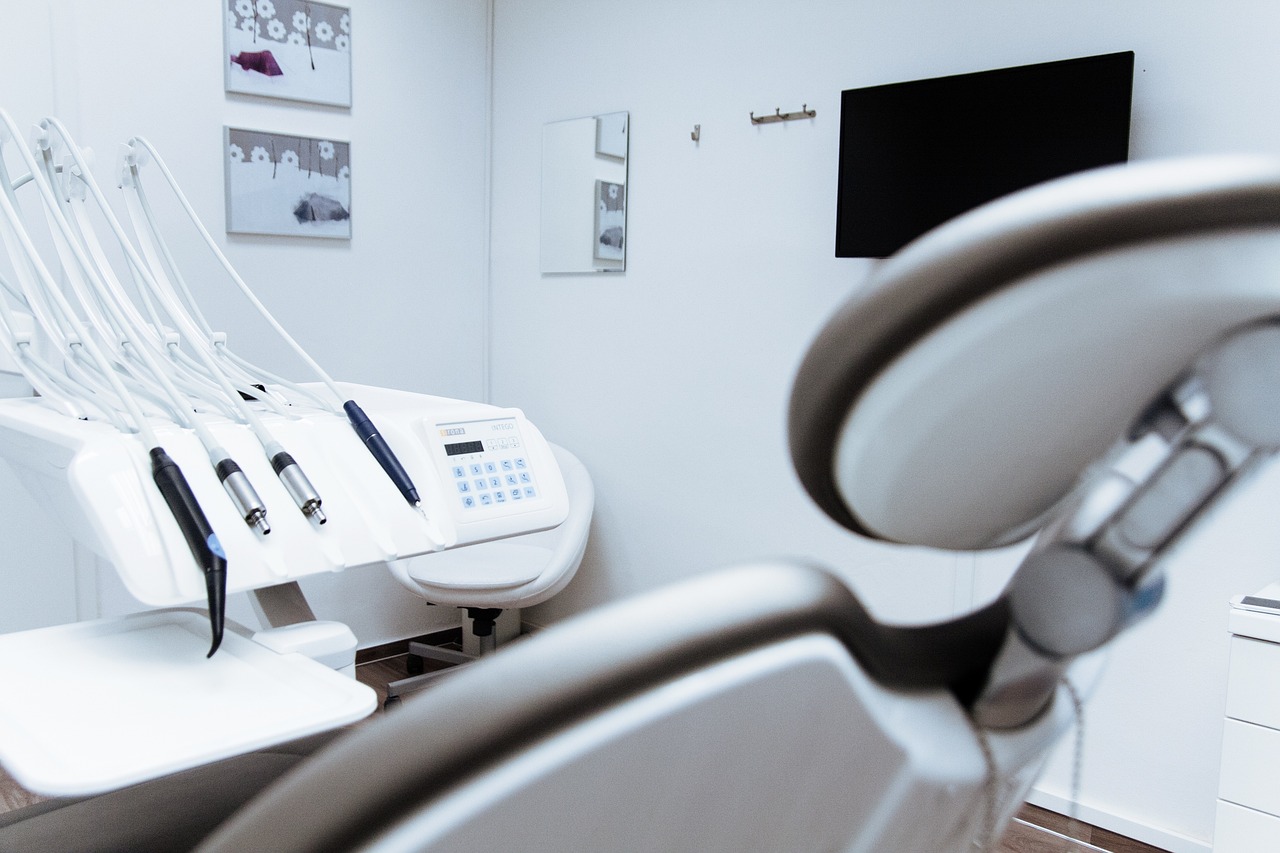Can a Non-Dentist Own a Dental Practice?

Answering whether a non-dentist can own a dental practice is both simple and complicated. While the easy answer is “yes,” the practicalities of such an arrangement are much more nuanced. Today, savvy investors and entrepreneurs are entering the dental field in large numbers, bringing fresh perspectives, innovative business strategies, and a great deal of capital to invest in dental practices—but there are strict regulations surrounding how they go about doing this. Below, we explore the growing trend of non-dentists owning dental practices, the legal and practical considerations, and what the future holds for non-dentist ownership in dentistry.
The Changing Landscape of Dental Practice Ownership
The dental industry has traditionally been dominated by dentists who provide treatment to patients and also own and manage their practices, either by themselves or with the support of administrative employees. In recent years, though, a new trend has emerged—non-dentists stepping into the role of practice owners.
This shift is driven by a number of different factors—some feel that non-dentists with a business background have a better ability to manage day-to-day operations, non-dentists often have more access to capital to invest in improvement and growth, and a fresh, outside perspective can lead to new and better business models.
Non-dentist ownership has the potential to reshape the entire dental industry, shifting focus to operational efficiency and patient satisfaction. Non-dentist owners often introduce innovative approaches that benefit both patients and practitioners, but there are also questions regarding the implications of non-dentist ownership on quality of care, long-term sustainability, and the legal and regulatory hurdles.
Understanding Dental Support Organizations
DSOs, or dental support organizations (sometimes also called dental practice management organizations), are one of the key drivers in the changing landscape of dental practice ownership. These companies specialize in providing essential non-clinical support services to dental practices, which enables dentists to concentrate their time and efforts on what they do best: patient care. DSOs manage a wide range of day-to-day dental practice functions, including marketing to attract new patients, billing processes to ensure proper revenue flow, human resources for hiring and training staff, as well as operations management for optimal efficiency.
DSOs often contract with dental practices who wish to outsource these non-clinical functions, but they also launch new and buy existing dental practices; as owners, the DSOs handle the administrative and business end, and they employ (or contract with) dentists and other clinicians to provide patient care.
The emergence of DSOs has led to a noticeable shift in the ownership structure within the dental field, with an increase in non-dentist ownership of dental practices. In 2021, the number of dentists who own their own practice dropped to 73%. The DSO model offers opportunities for entrepreneurs and investors who may not have a clinical background in dentistry to enter the industry. Ideally, this collaboration means more efficient and streamlined operations and access to better resources, including specialized knowledge in management, technology, and marketing.
The Legal and Practical Considerations
As you can imagine, there are a number of legal issues to navigate when it comes to non-dentist ownership of dentistry practices and dental partnerships with DSOs. Below, we’ll discuss some of the most pressing.
Navigating State Laws
One of the biggest challenges for non-dentists looking to own a dental practice is navigating the complex web of state laws. Regulations vary significantly from one state to the next. On one end of the spectrum, South Carolina has no restrictions on who can own a dental practice, as long as the owner does not impede the dentist’s professional judgment. On the other end, there’s Florida, which has a law that stipulates that non-dentists cannot employ a dentist, interfere with their clinical judgment, or oversee the use of dental equipment and patient treatment. These regulations effectively prohibit anyone other than licensed dentists to own a practice.
Even in states with strict regulations, there are ways to navigate the legalities and set up legal dental partnerships. In Florida, for example, dental practices may have a clinical component and a separate administrative component handled by a DSO. Research the laws in your state and consult with an attorney before making any decisions.
Professional Autonomy
Another critical consideration is professional autonomy. Dentists have spent years training to provide high-quality care to their patients. When a non-dentist owns a practice, there can be concerns about the dentist’s freedom to make independent clinical decisions. This is the reason many states require that a licensed dentist oversees all clinical aspects of the practice, ensuring that patient care remains the top priority.
Day-to-Day Management
On the operational side, running a dental practice requires managing staff, marketing services, handling finances and insurance, and ensuring compliance with healthcare regulations. This is where non-dentist owners can excel. With their business acumen, they can streamline operations, improve patient flow, and increase profitability. However, it’s essential to have a solid understanding of the dental industry to make informed decisions that benefit both the practice and its patients.

Pros and Cons of Non-Dentist Ownership
If you’re selling your dentistry practice, you may weigh the pros and cons of selling to a DSO or other investor from the perspective of your patients and employees. And, if you are looking to invest in a dental practice, you may also wonder about the pros and cons of making such an investment. Here are some factors to consider:
Financial Benefits
One of the main advantages of non-dentist ownership is the potential for significant financial gains. Entrepreneurs with strong business skills can optimize operations, reduce costs, and increase revenue, resulting in a profitable dental partnership for all parties involved. If you’re selling your dental practice, a non-dentist may offer a better price or a faster transaction.
Innovation
Non-dentist owners often bring new ideas and approaches to the table. They may introduce advanced technologies, have more experience in implementing effective marketing strategies to grow the business, and create a more patient-centered experience. This innovation can set non-dentist owned practices apart from more traditional models.
Potential Conflicts
One of the main concerns over non-dentist ownership is the potential for conflicts between the owner and the clinical staff. Even in states that don’t have strict regulations delineating clinical vs. administrative duties, it’s important to establish clear roles and responsibilities. This separation ensures the dentist retains control over all clinical decisions, while the owner is strictly relegated to business management.
Regulatory Hurdles
Navigating the regulatory landscape can be challenging, with a number of hoops to jump through in order to stay compliant. Non-dentist owners must abide by complex state laws, healthcare regulations, and professional standards. Failure to do so can result in legal issues for both the owner and clinical staff, and also damage a practice’s reputation.
The Future of Dental Practice Ownership
The role of non-dentists in the dental industry is evolving. As more investors enter the field, it brings new business models and more innovative approaches to patient care. However, it’s essential to maintain a balance between innovation, profit, and professional autonomy to ensure the best outcomes for patients and clinicians.
When things run smoothly, these collaborative partnerships between dentists and non-dentist owners lead to more effective dental practices, and better patient experiences. Dentists can focus on providing high-quality care while the practice owner handles operations, marketing, and finances. This division of labor can result in a more efficient and profitable practice, and many dentists have found this model to be their ideal.
While there are legal and practical challenges to consider, the benefits of owning a dental practice—from financial gains to the satisfaction of providing innovative patient care—make it an attractive option for many investors. By understanding the regulatory landscape, establishing clear roles, and focusing on collaboration, non-dentist owners can create thriving practices that benefit both patients and clinical staff.
Learn More About Non-Dentists in Dentistry
Whether you’re an entrepreneur looking to invest in dentistry or a dentist curious about selling to a DSO, you can find the right fit for your needs at Practice Orbit. Sign up as a seller or buyer, or contact us today to learn more.